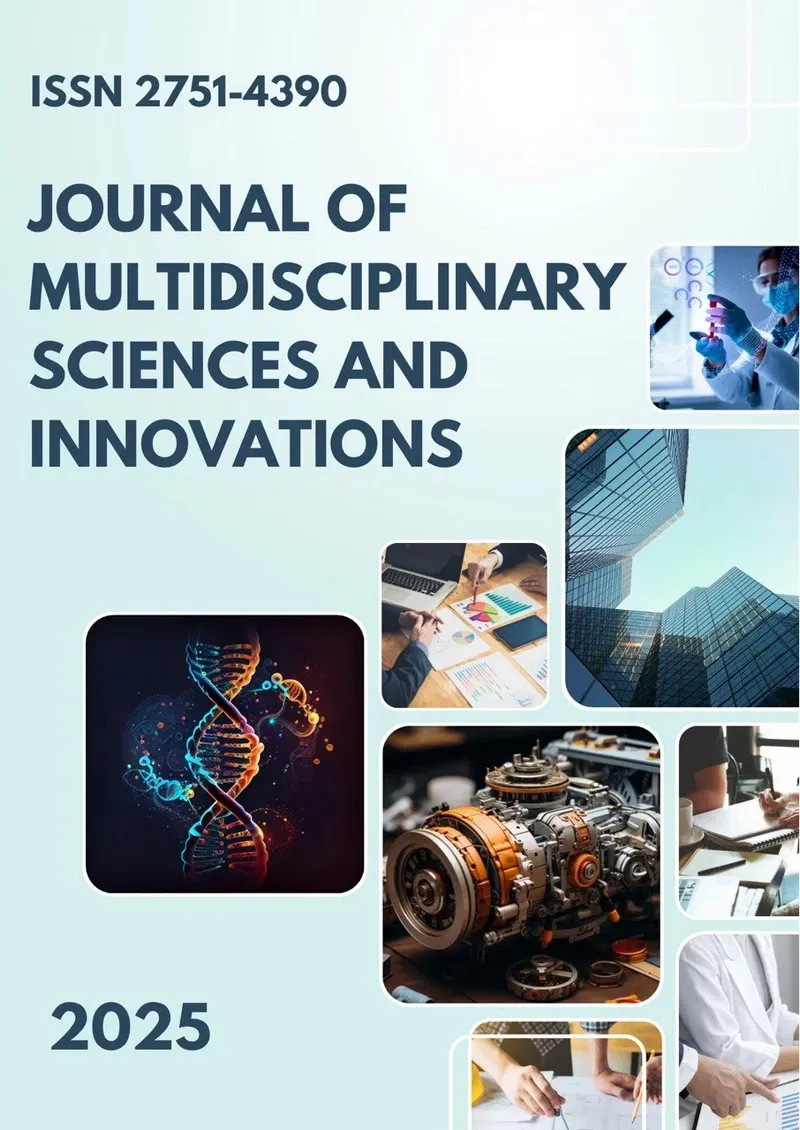
https://ijmri.de/index.php/jmsi
volume 4, issue 2, 2025
196
POETICAL FEATURES OF ALEXANDER FEINBERG'S WORK.
Shukhratbekova Zakhrooyim Khurshidbek kizi
1
st
year of the Uzbekistan State World Languages University.
Faculty of Foreign Languages and Literature,3
rd
English faculty
e-mail:shuxratbekovaz@gmail.com.
Annotation:
This is a poetic article analysis of the work of Alexander Arkadyevich Feinberg.
The artistic image, stylistic methods and main themes created in the poet's works are highlighted.
The role of metaphor, symbol, allegory and intertextual elements in his poetics is considered. It
analyzes what peculiarities his poetry has in philosophical, social and personal lyricism. The
article also examines Feinberg's poetry through language and rhythm, and highlights its influence
on modern literature.
Keywords:
Alexander Feinberg, poetics, metaphor, symbol, philosophical poetry, lyrics,
stylistics, intertextual connection, artistic style.
Introduction. Alexander Arkadyevich Feinberg is one of the most experienced figures of modern
Russian literature, whose poetry stands out for the deep content of artistic images, the originality
of poetic language and the philosophical style of expression. In his work, the poet addresses the
spiritual layers of the human soul, history and life. This article on Feinberg's poetics will analyze
scientific literature, stylistic style and rationality in modern times.
1.The main features of Alexander Feinberg's poetics.
One of the most important features of Feinberg's poetry is his poetic style and wide support for
artistic imagery. He often seeks to express his thoughts more deeply, resorting to metaphors,
symbols and allegories.
Removal from metaphors and symbols
.
Metaphors have a strong poetic effect in Feinberg's poetics. For example, the image of the "night
candle" can be interpreted as a symbol of the transience of human life, loss and time. In his
poems, natural phenomena, historical events and experiences are transformed into poetic
symbols.
Intertextual connection
.
Some of his poems are connected with other literary works, and
inspiration from Russian classics and world literature is noticeable. This is a reflection of
Feinberg's work as a cultural and intellectual treasure.
2. Thematic scope and philosophical narrative of his poetry.
Feinberg's poetry is very broad in subject matter, including philosophical, social and personal
lyrics.
Philosophical poetry.

https://ijmri.de/index.php/jmsi
volume 4, issue 2, 2025
197
He covered the human existence and criticism, life and death, time and eternity in his works.
These poems make the reader think.
Social and political themes.
Some of his poems are devoted to topics such as social inequality, human rights and freedom.
His poems have a large place in real support in society.
Personal lyrics.
He seeks to express his experiences and nostalgic feelings through poetry, revealing the
subtleties of the human soul.
3. Linguistic and stylistic features of Feinberg's poetics.
His poetry is distinguished by its unique language and skill. Harmony of simplicity and
complexity. The poet strives to convey deep philosophical meanings through simple phrases.
Rhythmic and phonetic production.
His poems are very harmonious in terms of rhythm and melody, which further enhances the
expressiveness of the work.
Dialogical style
The desire for dialogue with the reader is one of the important parts of his poetry.
4. Role and influence in modern literature.
Feinberg's poetry has become an important part of modern Russian literature, serving as a source
of inspiration for many young writers. His poetics created freedom of artistic expression and
experimentation with new styles.
Summary.
The poetics of Alexander Feinberg is distinguished by its philosophical content, broad support
for artistic imagery, and unique stylistics. His poems, while revealing the inner world of the
human soul, serve to work with literary language and poetic imagery. His place and influence in
modern literature demonstrate his poetic skill to a high degree.
Used literature.
Keldiyorova, S., & Ergashova, B. (2025). Alexander Feinberg's creative legacy and place in
literature. NRJ, 2(2). URL: ojs.renaissance.com.uz.
Ganiyeva, M. (2024). Proportion of form and content in translations of Alexander Feinberg's
poems. Journal of New Century Innovations, 54 (3), 45-57.
3. Feinberg, A. (1998). Izbrannye verse. Tashkent: Izdatelstvo Literatura.
4. Rahmonov, O. (2019). The development of Russian poetry and the role of Alexander
Feinberg's work in Uzbekistan. Journal of Uzbek language and literature, 6(1), 23-31.
5. Ismailova, Z. (2021). Lingupoetic features of Alexander Feinberg's poetics. Issues of
Philology and Translation, 8(4), 78-89.
6. Mirzayev, S. (2017). Intertextual connection in Russian poetry: the case of Feinberg.

https://ijmri.de/index.php/jmsi
volume 4, issue 2, 2025
198
Collection of Scientific Articles of Tashkent State University, 4(2), 33-41.






